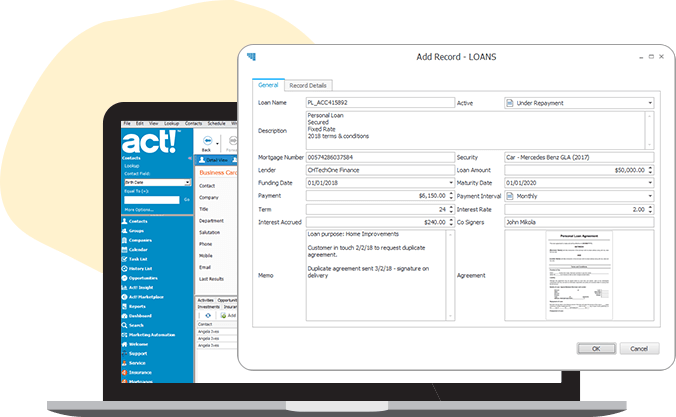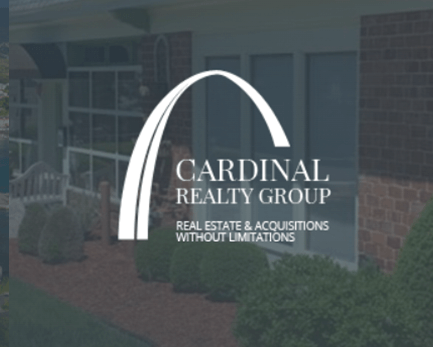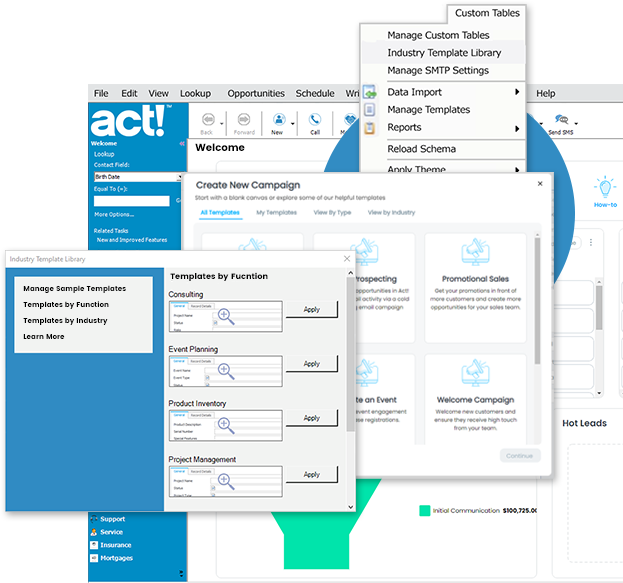TLDR
Real estate CRM is a system combining contact management and marketing automation to help agents and brokers nurture leads, track sales pipelines, and build long-term relationships.
Real estate professionals benefit from using a CRM as it provides increased efficiency, better lead nurturing, stronger client trust, and more repeat and referral business.
Key features to look for include:
- Pipeline and opportunity tracking
- Detailed client profiles, reporting, and analytics
- Marketing automation for drip email campaigns, segmentation, and follow-up
- Mobile access to manage on-the-go
When choosing a CRM for real estate, assess your needs based on budget, required functionality, and ease of use.
To implement effectively:
- Audit your current processes and data
- Prioritize features and automation that align with your goals
- Use a CRM + marketing automation tool to centralize communications, automate follow-ups, and streamline workflows.
Overall, a real estate CRM helps agents gain insights into their business, automate repetitive tasks, maintain organized client data, and deliver personalized, timely communication to grow and retain their customer base.
Did you know that there are more than 3 million active real estate licenses in the US? The country is also home to over 106,548 real estate brokerage firms. In other words, today’s real estate agents should prepare to face stiff competition.
But, how do you attract prospects and turn them into long-term clients in such a competitive scenario? The key is to build lasting customer relationships that translate into repeat business and referrals. And you need a robust real estate CRM system to achieve that. It helps you close more deals and turn existing customers into loyal advocates.
This guide will delve deeper into what real estate CRM is, why it’s crucial for today’s agents and brokers, and how to select the right fit CRM for your business. We’ll also outline best practices for implementing CRM to get you up and running right away.
Defining Real Estate CRM: What it is and what it does
Real estate CRM (customer relationship management) is software that is usually paired with marketing automation and designed to help agents, realtors, real estate companies, and brokers manage their businesses. This CRM database helps with sales, marketing, information management, reporting, and customer relationships. CRM software is beneficial for agents by supporting their lead nurturing activities, helping them to track their pipeline KPIs and close deals, and enhancing their customer support.
CRM solutions are not mandatory for most real estate agents and brokerages in the real estate industry, but it is a valuable tool for increasing efficiency and improving marketing efforts. Customer relationship management (CRM) software helps businesses fine-tune their contact management processes and grow their new leads and existing customer relationships. For example, with CRM software, agents and brokers can see a customer’s preferences and with whom and where their customer has interacted. This allows room for targeted marketing.
The most helpful CRM software includes marketing automation so you can seamlessly align your sales and marketing efforts including email marketing. Marketing automation software provides agents and brokers with the functionality to develop and maintain meaningful customer relationships using customized communications including drip campaigns. Easy-to-build email campaigns often include customized email templates that are sent when specific triggers occur.
In a nutshell, a CRM is software that provides an interface between organizations and their customers or clients. It improves lead management and allows an organization to better understand its customers’ needs and engage with them more effectively.
CRMs are often used by big and small businesses that sell products or services. But they can also be used by nonprofits, government agencies, and other organizations.
Why CRM is important for real estate agents
A recent study found that more than 60 percent of real estate agents making over $100,000 annually use CRM software. On the other hand, 65 percent of agents who make less than $35,000 a year don’t use a real estate CRM system.
The numbers spell it out — using CRM software results in more sales (and income) for real estate professionals. However, the benefits aren’t restricted to revenue growth.
According to a 2022 report, 44 percent of consumers will spend $500 or more yearly with brands they trust. If that trust breaks, 55 percent of consumers believe they will never purchase from the brand again.
Consumers will spend more with most trusted brands
These statistics highlight how trust shapes purchase decisions. That’s particularly true for the real estate industry, where transactions involve large sums of money.
As a real estate professional, you must earn the trust of every potential and existing customer.
Moreover, even if a buyer doesn’t close a deal today, they might be open to purchasing a property from you a few years later. Or they might refer your firm to a friend or family member.
All you have to do is maintain constant communication and build a long-lasting relationship with them. And CRMs play a central role in nurturing these relationships. From sending personalized offers to helpful buying guides, they can help you do it all.
Benefits of real estate CRM software
Real estate CRM helps agents improve marketing, track leads, and automate sales processes in their real estate businesses. Real estate agencies can also increase sales by creating more personalized marketing campaigns and emails.
With more leads and appointments, it’s easier to be more productive and get more work done. Efficiency is vital for agents since every minute counts.
Real estate CRMs are excellent tools for managing a large sales volume. More sales mean more income for agents. Agents and realtors can use customizable reports to track details about each transaction and measure meaningful data, like sales cycles and purchasing trends that may help determine if a listing price was too high or too low.
Additionally, management tools like real estate CRM can help agents reduce their time spent on administrative tasks by helping to streamline their lead generation and transaction management-related tasks.
A CRM also helps agents stay organized and focus on specific tasks that are most important by calling out priority customers and deals in customizable reports and easily accessing records and data of previous and potential clients.
Real estate software helps agents track their sales and marketing activities. As a result, agents can plan their workload better and stay on top of it. It can also help them keep track of client information, like address and contact information, to automate processes.
What you can expect from real estate CRM software
A real estate CRM platform with the right features can help optimize various aspects of your business, from customer experience to business planning.
Here are the key benefits of using a CRM at your real estate firm:
Insights into your business and inventory
A robust real estate CRM system provides you with a 360-degree overview of your business. You can track results from marketing campaigns and sales strategies to identify the best-performing ones. If you own a large-scale real estate business, you can monitor each agent’s performance and spot the ones who close more deals.
Additionally, CRM data can help you delve deeper into your existing inventory. Tracking deals and transactions lets you identify top-performing regions and property types. That, in turn, gives you an edge over competitors who don’t have access to such in-depth analytics.
Real-time tracking and client management
A CRM platform automatically tracks customer activity in real time, be it opening a promotional email or clicking on an open house invite. This gives you insight into their behavior and preferences, which can help tweak your sales tactics.
Modern real estate CRMs even integrate with other tools in your tech stack, such as email marketing platforms, appointment scheduling tools, and cloud storage solutions. This results in a seamless flow of data among these tools, eliminating the need to switch between them all the time.
For instance, when a client moves to a new location or updates their phone number, you can add these details to the CRM, which, in turn, updates their information on any other tools connected to the CRM. You’ll avoid gaps or errors in customer interactions due to redundant or inconsistent data.
Improved customer relationships and service
With CRM software, real estate agents have centralized access to customer details. For instance, when an agent follows up with a lead for the first time, the same is added to the respective record. All other agents immediately get access to the details of this interaction.
When another agent is assigned the subsequent follow-up, they’re better prepared to start the conversation due to this information. That, in turn, results in improved lead nurturing, maximizing the chances of closing a deal.
Additionally, with customer preferences just a click away, agents can make more personalized recommendations. For instance, they can recommend properties according to a buyer’s preferred location or type. If a buyer has shown prior interest in a specific regional market, agents can invite them to open houses accordingly.
Such personalized experience can be instrumental in setting your real estate business apart from competitors. It helps you delight clients with relevant information and deals and win their trust for life.
Centralized and automated communications
Nurturing active leads and existing customers is equally crucial to fostering lasting client relationships in the real estate industry. It emphasizes the importance of providing them with the correct information at the right time.
A real estate CRM platform makes that possible by automating routine tasks like follow-ups and reminders. For instance, when you close a call with a lead, you can set a date for a follow-up call. The CRM will automatically send a reminder on the specified date. If you can’t check back with the lead, another agent can take up the task. That’s the added benefit of having a centralized dashboard at your fingertips.
Similarly, you can keep the conversation going by scheduling emails and calls on specific dates. It gives you more time to focus on high-value tasks and, ultimately, boosts productivity and efficiency.
Learn more about how CRM fuels the sales process for today’s real estate agents

The Best CRM for Real Estate Must-Have Features

The global CRM market was worth $63.91 billion in 2022. It’s projected to grow at a CAGR of 12.5 percent between 2023 and 2029. That means if you’re looking for a CRM platform, you’ll likely be overwhelmed with options.
However, not every CRM software will be the right fit for your real estate business. If you want to select the right platform, it’s crucial to have a clear idea of the must-have real estate CRM features.
Here are the features that realtors frequently use.
Pipeline management and sales management
Optimizing your sales process is integral to closing deals and boosting revenue. If your sales process is filled with gaps, you might miss out on opportunities, even if you fill the sales funnel with loads of leads.
Real estate agents overcome this challenge with a CRM’s sophisticated sales and pipeline management tools. A top-notch real estate CRM system provides a detailed sales pipeline overview, helping identify active leads and potential sales opportunities. You can use out-of-box templates or build your own customer sales process with it.
Real estate agents can also track the sales process in real time and monitor how prospects move from one stage to the next. It also helps identify gaps that might cause leads to churn.
Detailed client profiles, reporting, and analytics
One of the most useful real estate CRM features is contact management. CRM systems let you store, organize, and manage client data, including contact details, engagement history, previous customer service interactions, listing price, and more.
Having access to all that information at your fingertips helps you communicate better with your clients. You don’t have to browse spreadsheets, email threads, and other files on multiple systems before answering a client’s query. Instead, you can retrieve the client’s record from the CRM with a single click.
With a cloud-based CRM, this data is available on a centralized dashboard. If a client has a query or complaint, anyone in your team can access their record and provide a quick resolution, resulting in an improved customer experience.
Besides improving communication, CRMs help realtors understand purchase behavior through detailed client profiles.
Most CRM platforms also offer advanced reporting and analytics features that can help you track various performance metrics. These come in handy when forecasting marketing demand and generating sales projections.
Marketing automation and campaigns
The best real estate CRM systems offer powerful automation capabilities to help improve your real estate marketing strategies. With marketing automation tools, realtors can streamline various routine tasks, such as:
- Lead generation from landing pages, which you can then store in the CRM
- Sending a welcome email every time a new subscriber joins your mailing list
- Engaging prospects through a sequence of personalized emails based on how they interact with previous emails
- Send SMS alerts to promote time-sensitive offers
- Segment mailing lists and send tailored email campaigns to each group
Using marketing automation tools frees up your time and lets you focus on more critical tasks, such as building effective lead-nurturing strategies and providing better customer support.
Mobile access
This is another feature that comes in handy for real estate businesses. Agents and brokers are typically on the move, shuttling between open houses and client meetings. They don’t always have access to a computer.
That’s why most realtors rely on mobile-friendly apps offered by CRM solutions. These apps let you communicate with prospective and existing customers anytime, anywhere. They enable you to monitor a lead’s current status or access a customer’s purchase history while showing properties to another potential client on the field.
Similarly, when you close a meeting with a client, you can enter your notes into the app. It’s the agility real estate agents need to keep up with the fast-evolving market preferences and buyer demands.
Want to know how to better leverage email marketing to reach more buyers and sellers? Check out this article

Types of real estate CRMs
CRM software comes in various forms, depending on your business’s needs. There are two main types of CRM software: cloud-based software and on-premise CRM software.
Cloud-based CRM software is best for companies that want to access their data anywhere, and on any device, via a cloud-based online portal. This is important for companies that operate across multiple locations or departments. A cloud-based solution is often most cost-effective because the software publisher manages all updates and technical details so agents and brokers do not have to invest in additional hardware or technical expertise.
On-premise CRM software is a type of software that businesses host on their own computers. On-premises CRM software solutions typically offer an added sense of control and security as agents deploy and manage the software.
Some CRM systems offer a hybrid approach with a cloud sync, giving agents and brokers the best of both worlds; the control and security of an on-premises solution, and the flexibility of a cloud platform.
Click here to learn about the security, flexibility, and affordability of Act!’s on-premises, cloud, and hybrid CRM solutions.
See what real estate agents have to say about Act!



How to pick the Best CRM for Real Estate
With so many CRM solutions available in the market, real estate professionals can have a hard time selecting the right one. So, how do you choose? There isn’t a one-size-fits-all formula for selecting a real estate CRM platform. Instead, you must carefully assess your business’s needs and make an informed decision.
Here are the factors you should consider when choosing real estate CRM software.
Budget
Pricing for CRM platforms can start from free and go all the way up to a few hundred dollars per month. You must have a realistic budget in mind before you shop around for CRM software. Account for other expenses besides the monthly subscription fee, such as add-ons and integrations.
Also, determine whether you’re willing to upgrade to a higher plan if you scale operations in the future. If you opt for an on-premise CRM, you’ll also have to pay related maintenance fees.
Desired functionality
The right CRM for your business isn’t the one with the most advanced features. Instead, it’s the one with features that’ll help you accomplish your business goals.
Ask the following questions to determine the must-have features for your real estate CRM software:
- Do your agents struggle with timely follow-ups?
- Are your agents and brokers caught up with menial tasks like data entry and appointment scheduling?
- How many of your existing customers result in repeat business or referrals?
- Which tools are you using in your marketing and sales tech stack?
Your answers to these questions will give you an overview of where your business currently stands. This will help you determine the features you need from your CRM. For instance, if your primary pain point is inefficient and unproductive agents, you must look for a CRM tool that prioritizes automation.
User experience
Implementing a new CRM comes with a considerable learning curve. But if the platform is challenging to use, your team of real estate professionals may be unable to make the most of it. This underscores the importance of finding a CRM platform that prioritizes user-friendliness.
If you’ve shortlisted a few options, read their online reviews and customer testimonials to get an idea of the ease of use. Additionally, you could ask the software provider for a demo or free trial to test the interface and determine whether it’s the right fit for you.
Selecting the right CRM system can do wonders for your real estate business. Whether you want to deliver a more personalized customer experience or improve the productivity of agents and brokers, a CRM comes in handy.
Download this free guide to learn how CRM and Marketing Automation can help your real estate business provide stellar customer experiences and outpace the competition.
How to implement real estate CRM
Real estate agents and brokers can start using a real estate CRM immediately, however, there are some benefits to implementing an all-in-one CRM and marketing automation system as part of a broader real estate growth strategy. Well-devised sales and marketing strategies help you grow your real estate business by implementing and adjusting your efforts based on real-time reports.
When selecting a platform, keep your budget and needs in mind. Assess your business goals to build a list of must-have features and functionalities. Lastly, schedule a demo or a free trial to take the platform for a spin and determine its usability.
Begin your real estate CRM implementation with a full audit of your business. Doing this will help you identify how you are currently operating and how it’s performing. You can use this information to better decide which type of real estate CRM to use. Start by auditing your current practices. Ask yourself the following questions:
- What data do you currently have as paper records?
- What activities does your team currently perform?
- What is collected for data?
- What processes are currently automated?
After completing your audit, implement your business’s most crucial CRM features to get your business up and running with the technology it needs to operate at its best.
Next, it’s time to incorporate your marketing strategy. Use your all-in-one CRM and marketing automation tool to streamline the setup of automated email marketing campaigns, follow-ups to website engagement, and create custom landing pages.
Are you ready to take your real estate business to the next level with a CRM?
Real estate CRM is an essential asset for today’s brokers and agents. Real estate software can help you reach new interested buyers, schedule appointments, announce open houses, track your customers’ engagement and manage your workflows.
As outlined above, real estate CRM software has several useful features, including sales and pipeline management, marketing automation, lead management, and mobile access. The best platforms even offer a host of integrations to streamline your workflow.
CRM tools help you stay on top of your customers and leads by easily accessing personalized information about them including past purchases, home equity, and listing price information. A real estate CRM also helps you manage your workflows from the first showing to inspections and closings, and accurately forecast future pipelines and revenues.
It’s crucial to choose a CRM that fits your needs and budget and that can grow with you over time. Some CRMs require a significant upfront investment and potentially offer features you may never use, while other more affordable options may be scalable and let you subscribe to a perfect-fit solution for your real estate business today.
CRM for real estate FAQs
Real estate CRM is customer relationship management software designed to help agents, realtors, real estate companies, and brokers manage their businesses’ sales, marketing, information management, reporting, and customer relationships.
The key benefits of having a CRM in your real estate business include thorough insights into your business and inventory, real-time tracking and client management, improved customer relationships and service, and centralized and automated communications.
You must carefully assess your business’s needs including your budget, desired functionality, and user experience needs. Be sure to schedule a demo or take a free trial to help determine its usability.
Real estate CRM software can help you reach new interested buyers, schedule appointments, announce open houses, track your customers’ engagement and manage your workflows. CRM tools help you stay on top of your customers and leads by easily accessing personalized information about them including past purchases, home equity, and listing price information. A real estate CRM also helps you manage your workflows from the first showing to inspections and closings, and accurately forecast future pipeline and revenues.
Want to learn more? Check out these related resources:

Articles










